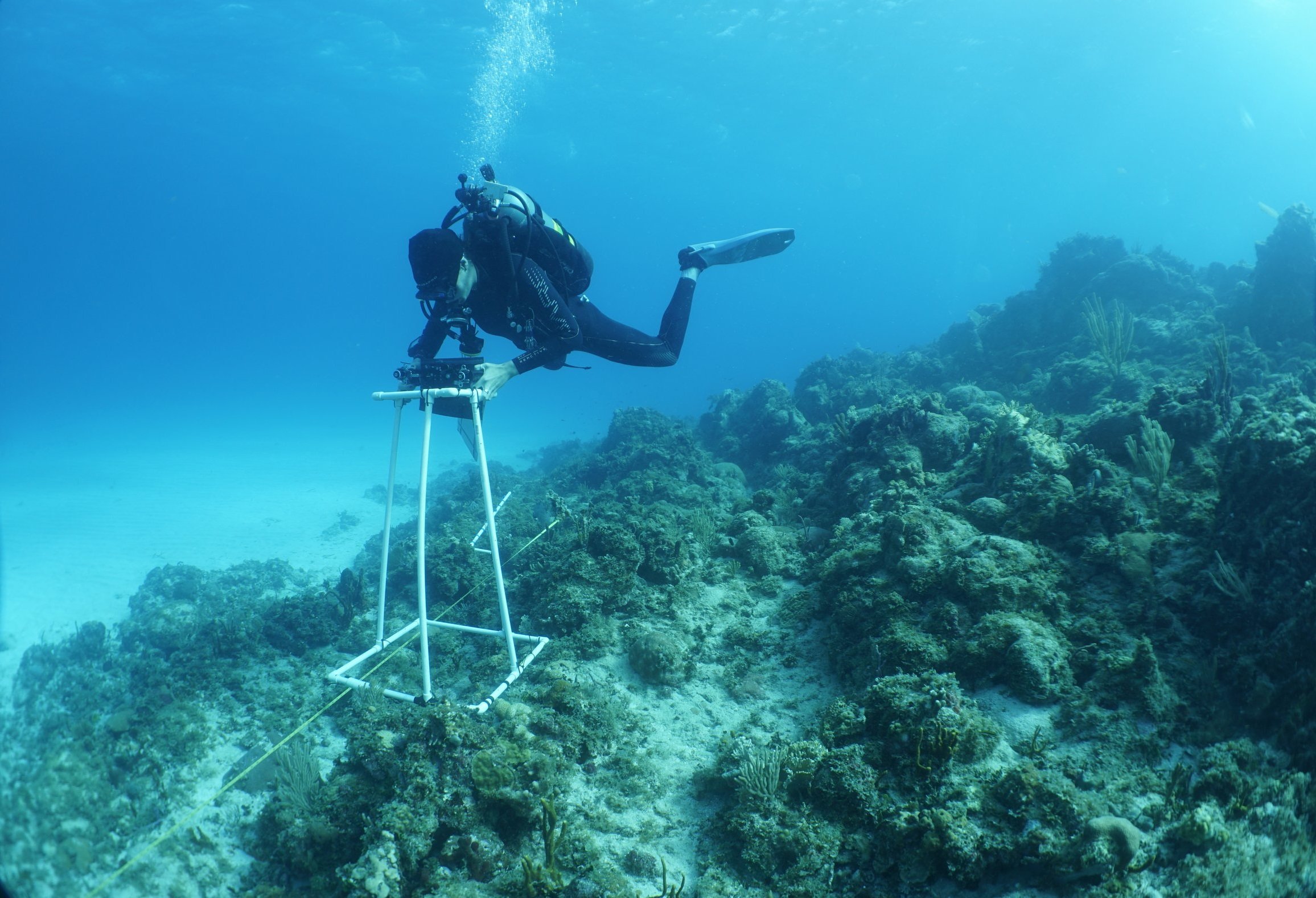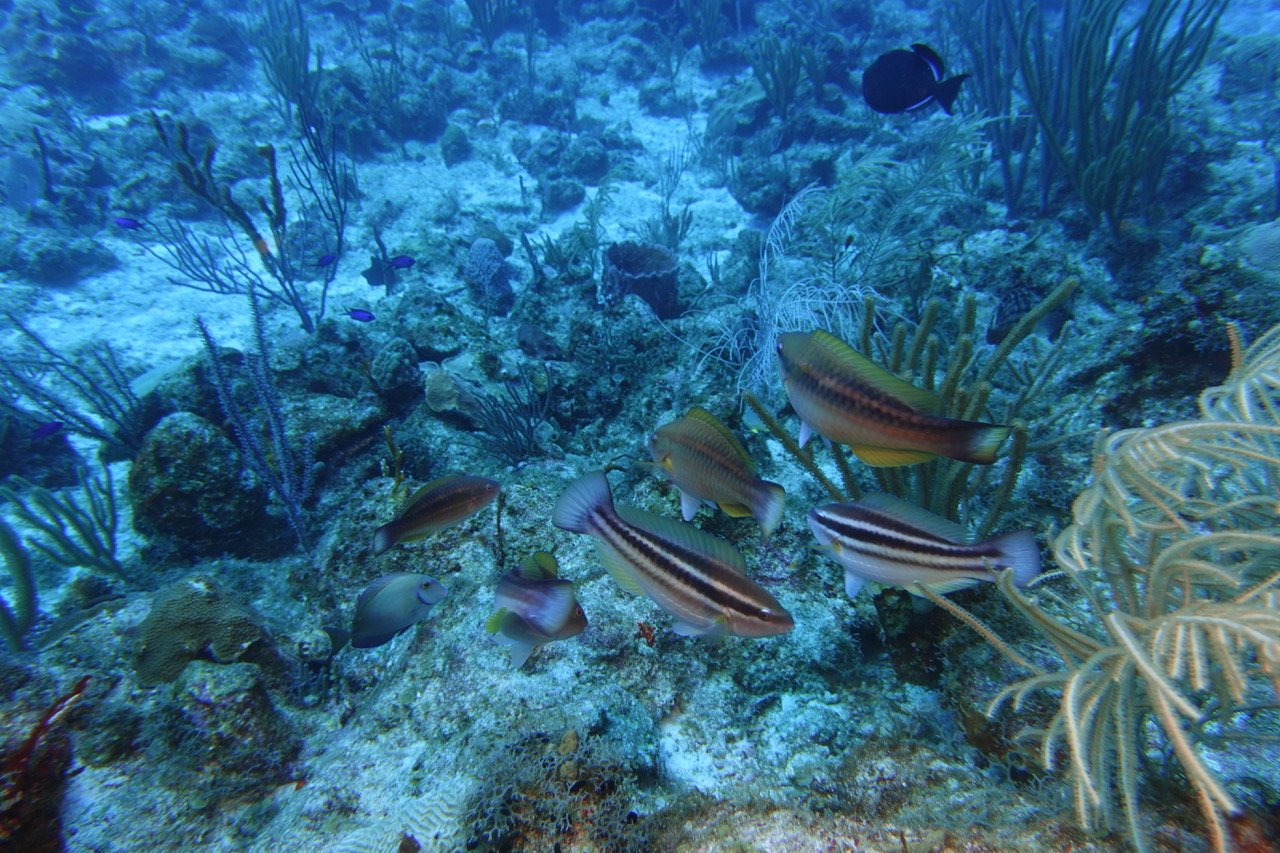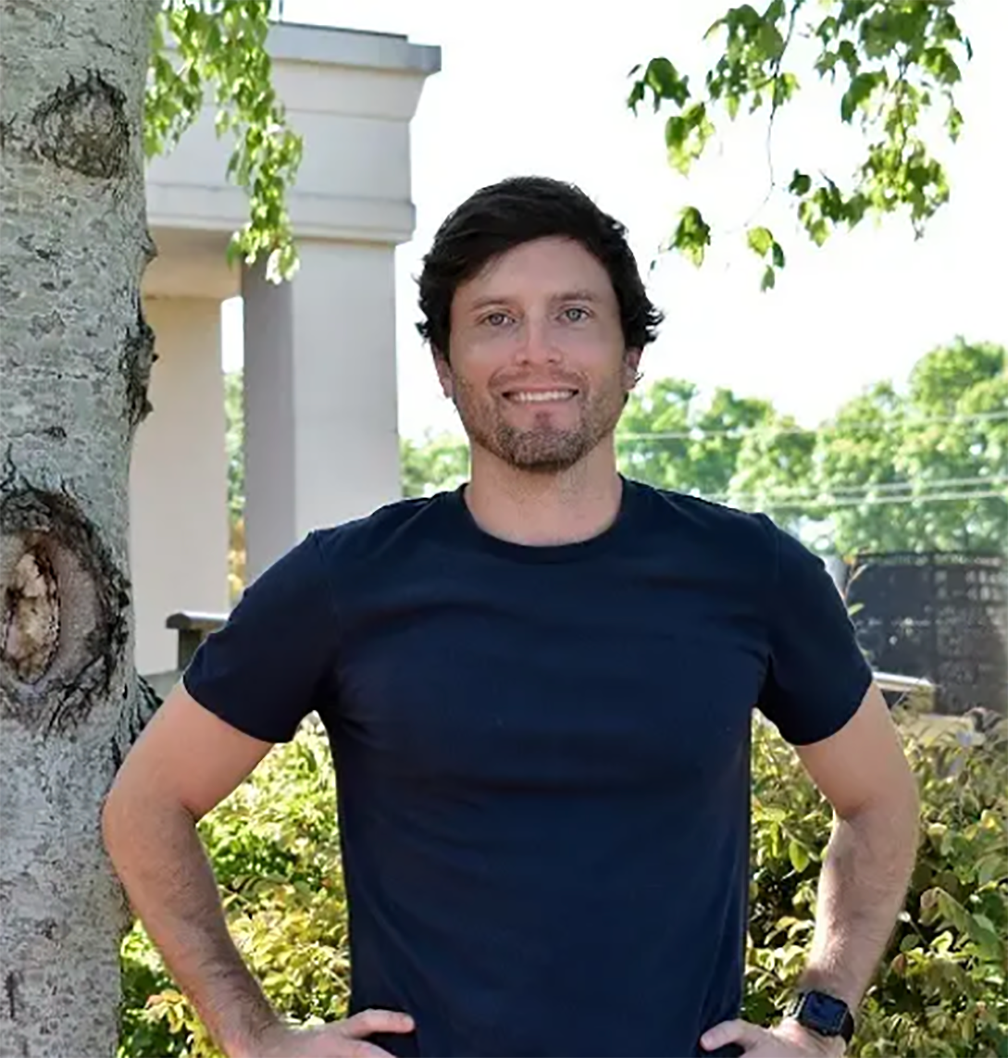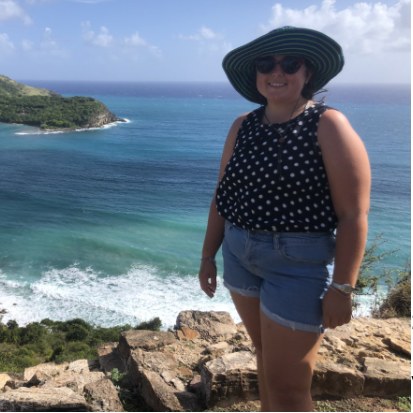Section Styles border
Coral Reef Resilience
Human Impact On The Marine Community
Communities of animals and plants have been responding to natural disturbances such as storms, fire, and other catastrophes for hundreds of millions of years. Since we arrived on the scene, we have added our own sets of human disturbances to these communities. Heat waves, physical destruction of the land and seafloor, and hunting and gathering of plants and animals, are just some of the activities that have been increasing in frequency and magnitude. This has led to unprecedented degradation of biological communities. However, many of these communities show the ability to persist amid the onslaught.
CONTENT LINKS
Understanding Resilience / Featured Student Projects / Dr. Tyler Smith / Project Team
Understanding Resilience
Resilience is the capacity of communities of animals and plants to resist disturbance and recover following the disturbance. Understanding what allows communities to persist in the face of disturbance is key to managing these systems so that they can continue to provide their benefits to society in the form of human health, prosperity, and beauty.
Grazing species, such as these princess parrotfish (Scarus taeniopterus), keep reefs clean of erect algae that can limit the ability of reefs to recover following disturbance. Photo: Leslie Henderson
Long-term data sets are collected over countless hours and targeted VI EPSCoR investments provide the opportunity to understand the drivers of coral reef resilience. Above: Salt River Wall, St. Croix, April 8, 2021. Photo: Sonora Meiling
Persisting In The Face Of Disturbances
Resilience is the capacity of communities of animals and plants to resist disturbance and recover following the disturbance. Understanding what allows communities to persist in the face of disturbance is key to managing these systems so that they can continue to provide their benefits to society in the form of human health, prosperity, and beauty. Almost no other ecological system on Earth is as diverse, beautiful, and fragile, as coral reefs. They are at the leading edge of degradation from disturbance and many are predicting no true coral reefs may exist by 2100 in the face of global warming. Still, after thermal disturbances known as marine heat waves some coral reef communities have shown the ability to resist and recover from disturbance. Understanding why these communities persist while others do not will allow us to focus precious management resources on the things that will provide the best shot at keeping coral reefs vibrant and healthy until such a time that humanity can learn to limit our own sets of disturbances.
Managing Coral Reef Communities
This research aims to determine the key attributes of coral reef communities of the US Virgin Islands that favor resistance and recovery from disturbance. This will allow us to focus management on specifically the key attributes that favor higher resilience, such as diversity, connectivity, refuges, and herbivory. We have amassed a collection of over 40 long-term ecological data sets from coral reefs of the USVI across most habitats and depths. These data sets are the culmination of many years of efforts by federal and territorial researchers to understand key processes affecting marine biological systems. In particular, EPSCoR funded efforts to increase the capacity of in–water research, such as investments in the USVI marine science facilities and technical diving, and of physical oceanography research, such as instrument array deployment and current and wave modeling, have allowed us to build one of the best integrated pictures of the coral ecosystems and their drivers in the world. In fact, the very reason that this research can be attempted now is because of these early investments.

“Understanding the factors that influence the resistance and recovery of coral reefs to human disturbances is one of the most important questions to be answered in sustaining coral reef ecosystems for future generations”
— Dr. Tyler Smith
Featured Student - Erin Hollander
Erin is a second year MMES student studying coral-macroalgal interactions across the USVI. The first part of her thesis is a temporal and spatial analysis of the Smith Lab’s Territorial Coral Reef Monitoring Program (TCRMP) data.

Section Styles background gallery-block-hover
Tyler Smith, Ph.D.
I am a coral reef ecologist interested in the dynamics of coral reef populations, physical and anthropogenic forcing of ecological systems, and human health aspects of coral ecology. I’m a researcher, teacher and student mentor at the University of the Virgin Islands and research coordinator for the US Virgin Islands Coral Reef Monitoring Program.
My current research focuses on the impacts of natural and man-made disturbances on coral reefs, the ecology of deeper coral ecosystems that form below 30m of water depth, reef refugia, and ecological aspects of Ciguatera Fish Poisoning.
“I hope that this project will provide the type of information that can be used to increase coral reef management in the face of massive disturbances. I also hope that we will uncover important areas of research that are still needed to improve our management of coral reefs.” - Tyler Smith
Meet the team
Dr. Lauren Olinger, Post Doc.
Partners and Collaborators
Ali Adem
College of Charleston
Caroline Pott
USVI Department of Planning and Natural Resources
Caroline Rogers
US Geological Survey, ret.
Daniel Holstein
Louisiana State University
Doug Wilson
UVI Center for Marine and Environmental Studies
Jeff Miller
US National Park Service, ret.
Joseph Ortiz
Kent State University
Leslie Henderson
National Oceanic and Atmospheric Administration (NOAA)
Dr. Marilyn Brandt
UVI Center for Marine and Environmental Studies
Migual Canals
University of Puerto Rico, Mayaguez
Peter Edmunds
California State University, Northridge
Dr. Richard Nemeth
UVI Center for Marine and Environmental Studies
Rosmin Ennis
U.S. Environmental Protection Agency
Sarah Groves
National Oceanic and Atmospheric Administration (NOAA)
Sarah Heidmann
UVI Center for Marine and Environmental Studies
Dr. Sennai Habtes
USVI Department of Planning and Natural Resources
Viktor Brandtneris
Reefs Unknown
Jeremiah Blondeau
National Oceanic and Atmospheric Administration (NOAA)
Elizabeth Kadison
UVI Center for Marine and Environmental Studies
Matthew Warham
USVI Department of Planning and Natural Resources
MMES Students
Erin Hollander
UVI MMES Student
Karli Hollister
UVI MMES Student
Alexys Long
UVI MMES Student
Elizabeth Harris
UVI MMES Student
Adeline Shelby
UVI MMES Student
Nicole Krampitz
UVI MMES Student






















